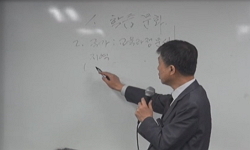The purpose of this study is to present the concept of ‘education of care’ and its specific tasks in the principles of care ethics and care democracy. Care is a concept that presupposes human fundamental vulnerability and interdependence. Humans a...
http://chineseinput.net/에서 pinyin(병음)방식으로 중국어를 변환할 수 있습니다.
변환된 중국어를 복사하여 사용하시면 됩니다.
- 中文 을 입력하시려면 zhongwen을 입력하시고 space를누르시면됩니다.
- 北京 을 입력하시려면 beijing을 입력하시고 space를 누르시면 됩니다.

‘돌봄의 교육’을 위한 시론:교사–학생 관계, 학교문화, 교육과정으로서의 돌봄 = A Study on the ‘Education of Care’: Care as a Teacher-Student Relationship, School Culture, and Curriculum
한글로보기부가정보
다국어 초록 (Multilingual Abstract)
The purpose of this study is to present the concept of ‘education of care’ and its specific tasks in the principles of care ethics and care democracy.
Care is a concept that presupposes human fundamental vulnerability and interdependence. Humans are social solidarity beings who are cared for when they are vulnerable and have to give care to others. Care ethics is a consciousness that comes from a sense of responsibility to care about and respond to the needs of others. It is the principle of care democracy that allows this care ethic to operate socially. This can be the principle of an alternative society to overcome the errors of liberalism and the limitations of social democracy.
Education has friendly related with caring. But, the discussion on the care in education is distorted due to the debate over elementary school care- class program. Just as our society has recognized the importance of caring for the vulnerable through the COVID-19 pandemic, it is necessary to restructure education of carecare in order to overcome the limitations of existing public education.
This study examined care-related studies that are actively discussed in the fields of women’s studies, ethics, sociology, and political science.
In addition, based on the research of Gilligan and Noddings, specific practical tasks of care education were presented in terms of teacher- student relationship, school culture, and curriculum. In the teacher-student relationship, a teacher’s ethics is needed to recognize students’ vulnerabilities and to respond to their needs. In this process, a public system should be established to take care of the difficulties that teachers inevitably face. In the school culture, a culture of care based on recognition and consideration should be established, which can be an alternative to overcome the recently controversial vicious cycle of infringement of teacher rights, child abuse, and school violence. In the curriculum, the needs of all students should be carefully considered through universal design of learning and growth-oriented evaluation. In addition, it is necessary to provide opportunities for students to practice the ethics of care through service-learning.
동일학술지(권/호) 다른 논문
-
회복적 전체 학교 접근(RWsA)에 기초한 단위학교 학교폭력 정책 모형 고안 및 적용 논의
- 교육비평
- 홍미영
- 2023
- KCI등재
-
교육행정분야 실천 영역에서 교육학의 성과와 과제:국가교육위원회 관련 연구와 제정 법률 비교를 중심으로
- 교육비평
- 김성열
- 2023
- KCI등재
-
- 교육비평
- 주정흔
- 2023
- KCI등재
-
- 교육비평
- 이동은
- 2023
- KCI등재





 KCI
KCI DBpia
DBpia







